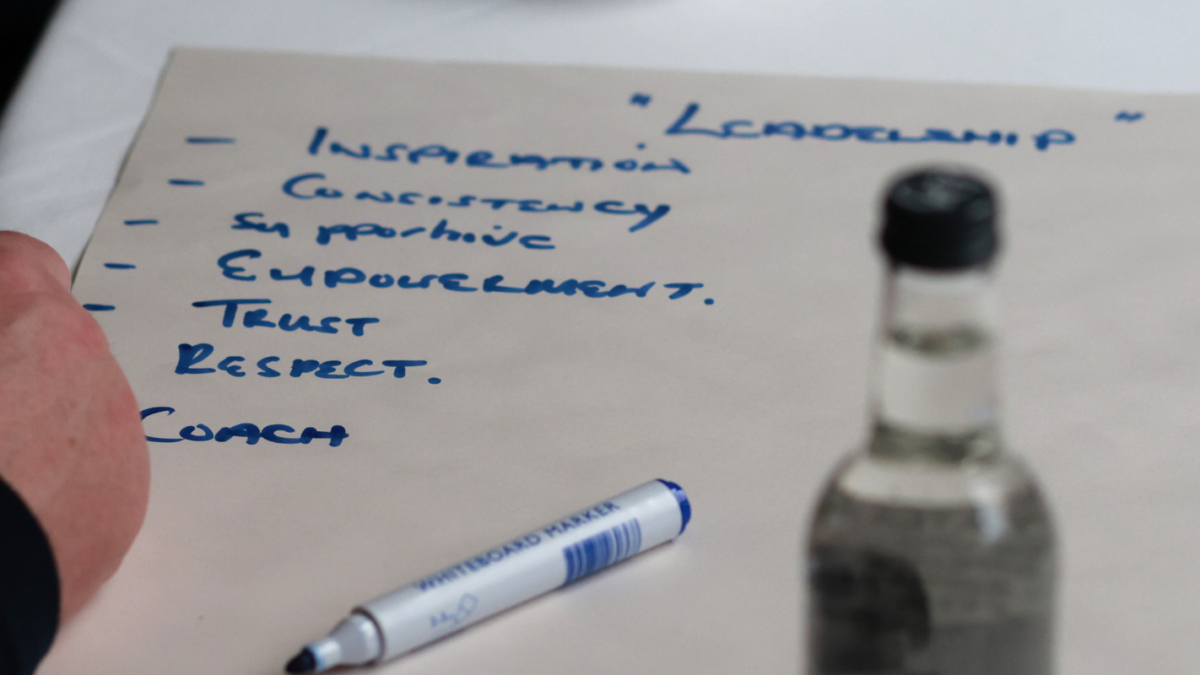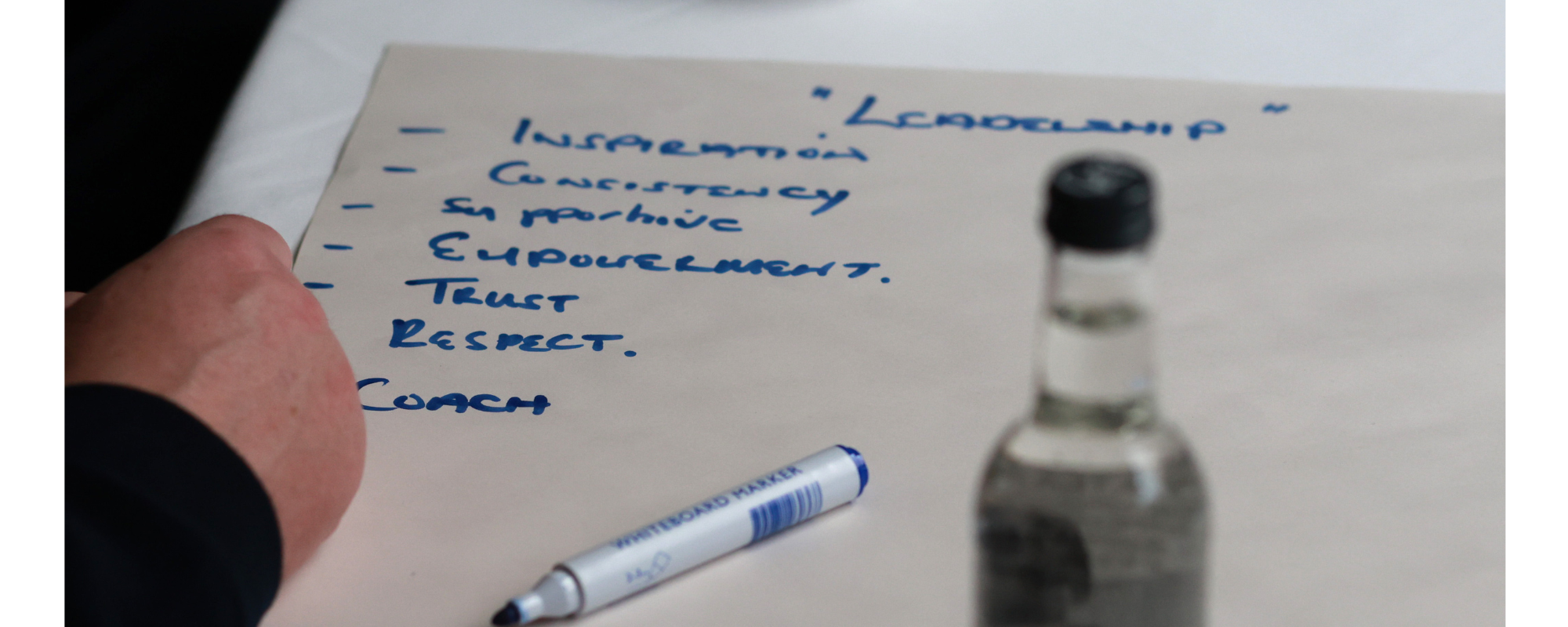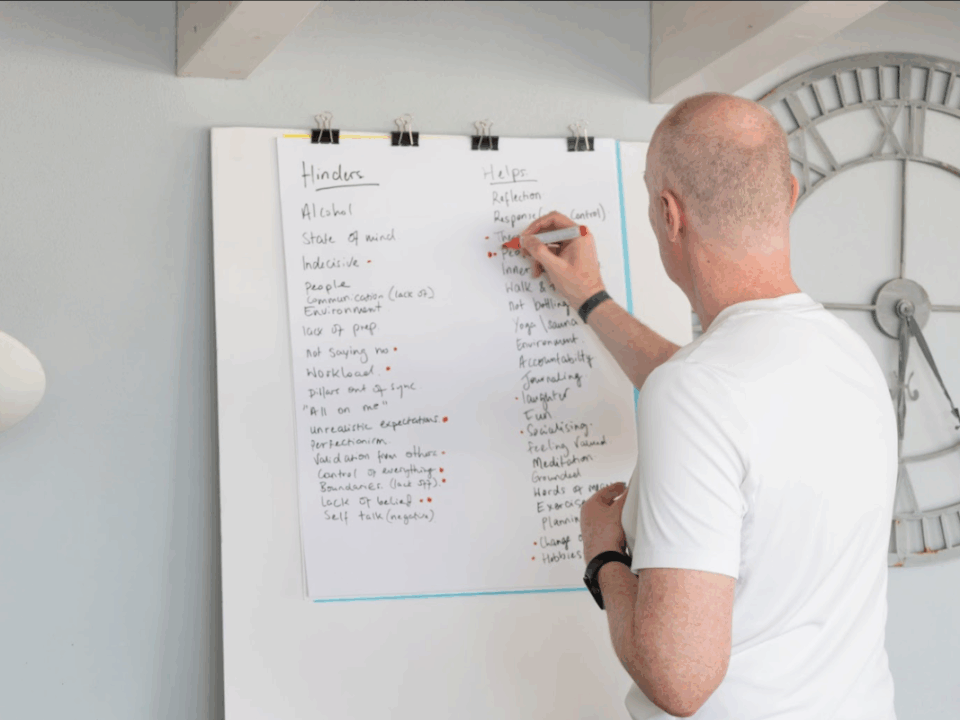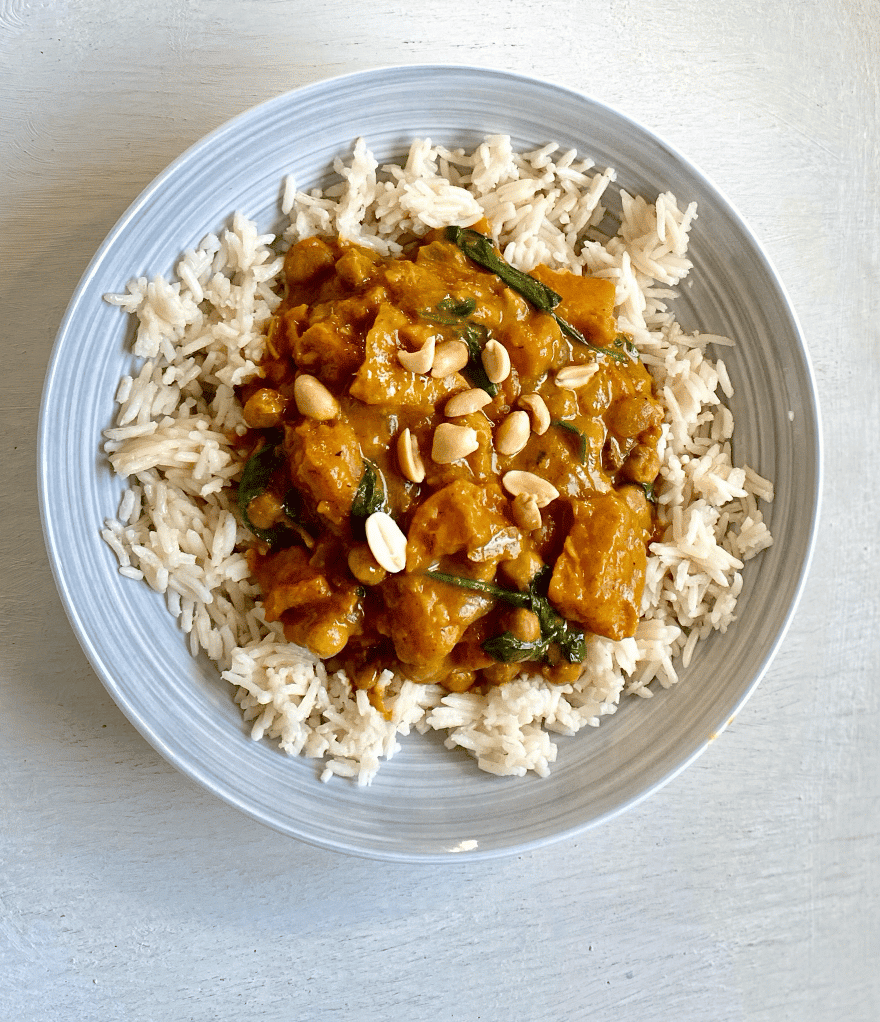
Sweet Potato and Chickpea Satay
March 22, 2025
“I’ve Never Thought About It Like That” — Why Identity Shapes Your Performance
April 17, 2025
Sweet Potato and Chickpea Satay
March 22, 2025
“I’ve Never Thought About It Like That” — Why Identity Shapes Your Performance
April 17, 2025I’ve never warmed to the word influencer. In fact, I still cringe when someone refers to me as one. That’s not to say being influential isn’t powerful or meaningful. It absolutely can be when done with intention and integrity. But labels are often projected through the lens of someone else’s perception.
Take leader, for example. For many, leadership is something you earn after a decade in senior management, or when you’re the head coach or captain of a high-performing team. But that narrow perspective can miss a big leadership opportunity.
For me, leadership was embedded into the very fabric of the environments I was fortunate to be part of in sport, in business, and in life. When you are surrounded by world-class leaders both on and off the field, it begins to shape what leadership looks and feels like. It becomes less about titles, and more about presence, standards, impact, and consistency.
Only in recent years have I started to question what leadership really means to me, and more importantly, how we make it accessible. If people don’t see themselves as leaders, they are unlikely to fully recognise their potential influence. That is a loss not just for them, but for the people, teams and communities around them.

So the real question becomes: Leader of what?
That is the question I was asked recently by a friend – “Why you?” What gives you the right or confidence to step into a leadership role, especially as a business owner when that wasn’t my original path?
Truthfully, it has been uncomfortable. I have often wondered if people I’ve worked with in the past look at our leadership events or talks and think, “What’s this all about?” But over time, I’ve become very clear on the answer: I am not trying to lead in everything. I am committed to leading in health, in performance, connection, the person, and in helping others invest in themselves to lead with more energy, clarity, and presence.
That version of leadership – one rooted in daily habits, consistency, and care – is a version I believe in deeply. Because I have seen the impact it can have.
Leadership Is About Standards
Leadership is also about standards. The ones you set for yourself, and the ones others come to expect from you. That idea was reinforced time and time again when I worked in elite sport, and it is something Stuart Lancaster often spoke about:
“Your level of performance will rise or fall to the level of your preparation.”
It is a reminder that leadership is not about flicking a switch on game day or in the boardroom. It is a reflection of the systems, habits, and preparation you commit to consistently. Whether you are stepping into a meeting, running a family household, supporting a loved one, or coaching a team, you will always default to your level of preparation.
That is why investing in your health matters. Your physical energy, your focus, your emotional control – these are all influenced by how well you eat, sleep, move, and manage stress. Leadership is not just inspiration. It is preparation and personal standards lived out consistently.

One of the best examples I have ever seen of this is Cillian Reardon, who was head of strength and conditioning at Leinster Rugby when I worked there. Cillian led by example in a way that never felt forced. He was fit, strong, and consistently made time to train. It was never something that took away from his role. It only added to it.
His physical presence had power, not because of how he looked, but because of the discipline and clarity he brought to everything he did. I always felt stronger when he was around. Not because he pushed others to train, but because his own standards made you want to raise yours. I felt the need to be at my best, to train harder, and to remain consistent in my own habits, simply because he was.
Cillian did not need to talk about performance. He lived it. And because he did, he was deeply respected. His leadership had nothing to do with hierarchy, and everything to do with example. That is the kind of leadership we need more of – in sport, in business, in homes, and in communities.
Living Leadership: Health Is Not Guaranteed
Interestingly, not all leaders prioritise their health. Even in elite sport, I have seen many fall out of rhythm with their routines, detaching from the habits that once gave them their edge. The same is true in business, parenting, education, and community work. Too many leaders give everything to others at the cost of their own wellbeing.
At a recent workshop, we asked a group of remarkable leaders to define leadership in their own words. Their answers were powerful: empowerment, accountability, guidance, professionalism, feedback. But when I asked, “What about being a role model?” there was a pause.
I described a role model not as someone who gives the perfect motivational speech, but someone who exercises regularly, sets clear boundaries, sleeps well, eats well, and brings energy and optimism into the room. The reaction was unanimous – that is inspiring. Yet most admitted they had not thought of themselves that way.
We are busy, right? We tell ourselves that investing in our own health is a luxury or something we will get to later. But I am not sure that mindset is serving us.
It is also worth recognising that participation in sport alone does not guarantee health. I was recently involved in a research project led by Cliodhna McHugh that examined cardiovascular disease risk in professional athletes. Despite high levels of activity, certain sport-specific demands – particularly in rugby and American football – were associated with increased body mass, blood pressure, and cholesterol. The key takeaway: a career in elite sport does not necessarily protect against lifestyle-related diseases like cardiovascular disease. Health must be actively maintained beyond performance alone.
When I started in professional sport back in 2010, performance nutrition was only beginning to be recognised for the critical role it plays. By the time I joined Leinster Rugby in 2013 I was the third person in that role. Why? Because high-performance sport understood early on that consistency in food, hydration, sleep, and mindset fuels elite results.
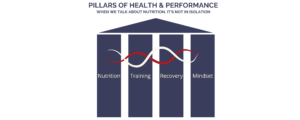
Now I wonder: are we ten years behind in society at large when it comes to valuing those same principles? And more importantly – are we applying them where they matter most, in the home, in our communities, and in everyday leadership moments?
I am excited for the day when leaders everywhere recognise that taking care of themselves is not indulgent – it is a vital act of leadership. I am hopeful we will see more people role modelling wellness, energy, and intentional living. And I am grateful to already know a few who embody that mindset. The challenge is to continue creating environments where this kind of leadership is encouraged, respected, and shared.
So here is the challenge I leave you with:
What do you want to lead in? What is your level of preparation? Are you showing up for that responsibility with the energy and presence it deserves?
Ready to elevate your leadership through intentional living? Explore our Finding Winning Moments event and see how it can support you on your journey.
Find Out More!
I’ve never warmed to the word influencer. In fact, I still cringe when someone refers to me as one. That’s not to say being influential isn’t powerful or meaningful. It absolutely can be when done with intention and integrity. But labels are often projected through the lens of someone else’s perception.
Take leader, for example. For many, leadership is something you earn after a decade in senior management, or when you’re the head coach or captain of a high-performing team. But that narrow perspective can miss a big leadership opportunity.
For me, leadership was embedded into the very fabric of the environments I was fortunate to be part of in sport, in business, and in life. When you are surrounded by world-class leaders both on and off the field, it begins to shape what leadership looks and feels like. It becomes less about titles, and more about presence, standards, impact, and consistency.
Only in recent years have I started to question what leadership really means to me, and more importantly, how we make it accessible. If people don’t see themselves as leaders, they are unlikely to fully recognise their potential influence. That is a loss not just for them, but for the people, teams and communities around them.

So the real question becomes: Leader of what?
That is the question I was asked recently by a friend – “Why you?” What gives you the right or confidence to step into a leadership role, especially as a business owner when that wasn’t my original path?
Truthfully, it has been uncomfortable. I have often wondered if people I’ve worked with in the past look at our leadership events or talks and think, “What’s this all about?” But over time, I’ve become very clear on the answer: I am not trying to lead in everything. I am committed to leading in health, in performance, connection, the person, and in helping others invest in themselves to lead with more energy, clarity, and presence.
That version of leadership – one rooted in daily habits, consistency, and care – is a version I believe in deeply. Because I have seen the impact it can have.
Leadership Is About Standards
Leadership is also about standards. The ones you set for yourself, and the ones others come to expect from you. That idea was reinforced time and time again when I worked in elite sport, and it is something Stuart Lancaster often spoke about:
“Your level of performance will rise or fall to the level of your preparation.”
It is a reminder that leadership is not about flicking a switch on game day or in the boardroom. It is a reflection of the systems, habits, and preparation you commit to consistently. Whether you are stepping into a meeting, running a family household, supporting a loved one, or coaching a team, you will always default to your level of preparation.
That is why investing in your health matters. Your physical energy, your focus, your emotional control – these are all influenced by how well you eat, sleep, move, and manage stress. Leadership is not just inspiration. It is preparation and personal standards lived out consistently.

One of the best examples I have ever seen of this is Cillian Reardon, who was head of strength and conditioning at Leinster Rugby when I worked there. Cillian led by example in a way that never felt forced. He was fit, strong, and consistently made time to train. It was never something that took away from his role. It only added to it.
His physical presence had power, not because of how he looked, but because of the discipline and clarity he brought to everything he did. I always felt stronger when he was around. Not because he pushed others to train, but because his own standards made you want to raise yours. I felt the need to be at my best, to train harder, and to remain consistent in my own habits, simply because he was.
Cillian did not need to talk about performance. He lived it. And because he did, he was deeply respected. His leadership had nothing to do with hierarchy, and everything to do with example. That is the kind of leadership we need more of – in sport, in business, in homes, and in communities.
Living Leadership: Health Is Not Guaranteed
Interestingly, not all leaders prioritise their health. Even in elite sport, I have seen many fall out of rhythm with their routines, detaching from the habits that once gave them their edge. The same is true in business, parenting, education, and community work. Too many leaders give everything to others at the cost of their own wellbeing.
At a recent workshop, we asked a group of remarkable leaders to define leadership in their own words. Their answers were powerful: empowerment, accountability, guidance, professionalism, feedback. But when I asked, “What about being a role model?” there was a pause.
I described a role model not as someone who gives the perfect motivational speech, but someone who exercises regularly, sets clear boundaries, sleeps well, eats well, and brings energy and optimism into the room. The reaction was unanimous – that is inspiring. Yet most admitted they had not thought of themselves that way.
We are busy, right? We tell ourselves that investing in our own health is a luxury or something we will get to later. But I am not sure that mindset is serving us.
It is also worth recognising that participation in sport alone does not guarantee health. I was recently involved in a research project led by Cliodhna McHugh that examined cardiovascular disease risk in professional athletes. Despite high levels of activity, certain sport-specific demands – particularly in rugby and American football – were associated with increased body mass, blood pressure, and cholesterol. The key takeaway: a career in elite sport does not necessarily protect against lifestyle-related diseases like cardiovascular disease. Health must be actively maintained beyond performance alone.
When I started in professional sport back in 2010, performance nutrition was only beginning to be recognised for the critical role it plays. By the time I joined Leinster Rugby in 2013 I was the third person in that role. Why? Because high-performance sport understood early on that consistency in food, hydration, sleep, and mindset fuels elite results.

Now I wonder: are we ten years behind in society at large when it comes to valuing those same principles? And more importantly – are we applying them where they matter most, in the home, in our communities, and in everyday leadership moments?
I am excited for the day when leaders everywhere recognise that taking care of themselves is not indulgent – it is a vital act of leadership. I am hopeful we will see more people role modelling wellness, energy, and intentional living. And I am grateful to already know a few who embody that mindset. The challenge is to continue creating environments where this kind of leadership is encouraged, respected, and shared.
So here is the challenge I leave you with:
What do you want to lead in? What is your level of preparation? Are you showing up for that responsibility with the energy and presence it deserves?
Ready to elevate your leadership through intentional living? Explore our Finding Winning Moments event and see how it can support you on your journey.
Find Out More!
Upgrade NOW
Upgrade NOW


